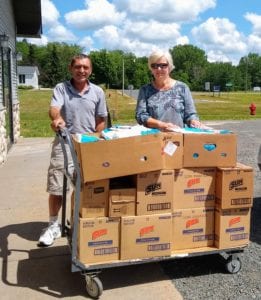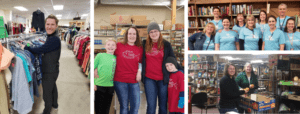Make the Most of Your Thrift Store Donation
It’s no secret. Family Pathways would not be able to provide essential services in our communities if it weren’t for the generous donations we receive, and that includes goods donated to the Thrift Stores. Family Pathways Thrift Stores generate approximately 65% of the organization’s revenue. We simply couldn’t do it without you!
Because you are kind and generous enough to donate goods, you probably want to make sure your donation is making the greatest possible impact, right? So here are several items to keep in mind to ensure your donation does the most good.
1. Our shoppers are likely not seamstresses.
It’s a common notion (ha! sewing pun!) that a high-quality or name brand piece of clothing can be sold despite a loose hem, small tear or missing button.
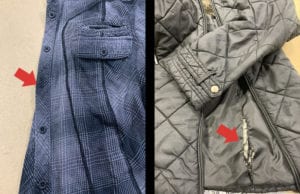 Sometimes folks tell us: “Someone will love this Columbia shirt enough to replace the missing button.” or “This is a nice warm winter coat. No one will care about a tear on the inside.”
Sometimes folks tell us: “Someone will love this Columbia shirt enough to replace the missing button.” or “This is a nice warm winter coat. No one will care about a tear on the inside.”
Unfortunately, this is not the case. Our shoppers are busy folks, just like you. We do our best to provide apparel that is gently used or like-new condition. We cannot sell items that require even a modest amount of repair in order to be wearable.
2. Gently used also applies to hardgoods
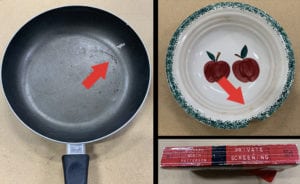 Hardgoods — household items, cookware, dishes, decor, books, etc. — should also be in gently used condition. This is particularly important because there are many hardgoods that we cannot recycle. This adds to our disposal and overall operational costs.
Hardgoods — household items, cookware, dishes, decor, books, etc. — should also be in gently used condition. This is particularly important because there are many hardgoods that we cannot recycle. This adds to our disposal and overall operational costs.
Again, some folks may think their items aren’t so bad. After all, they’ve been using and loving them for years. Scratched frying pans, chipped and stained dishes, even books with damaged bindings are items that we cannot sell.
3. Moldy and dirty items cannot be accepted
For health and safety reasons, we cannot accept items that are moldy, wet or soiled.
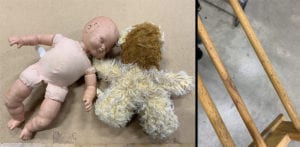 The baby doll and dog toy pictured are rather extreme examples of items that are donated. Both are very soiled and are not salable.
The baby doll and dog toy pictured are rather extreme examples of items that are donated. Both are very soiled and are not salable.
The black marks on the CD rack are mold. This presents a health hazard and cannot be sold. One might think it can be cleaned up and sold, but that brings us to #4…
4. Thrift Store staff and volunteers are not able to launder or deep clean items
With the sheer volume of donations we receive daily, we simply aren’t able to do a deep clean on the items we take in. We’re able to wipe down and give a quick dusting to hardgoods, but if there is mud caked in the treads of the shoes you’re donating or baked-in residue on dishes, we may not be able to accept these items. Clothing and linens should be laundered prior to donating. It’s also extremely helpful if garage sale stickers are removed from items prior to donating them. Providing donations that are clean and ready for the sales floor saves our staff and volunteers time.
5. It’s not personal
Please do not be offended if your donation is not accepted. In order to keep costs down, we can only accept items we know we can sell. Our experienced staff and volunteers may turn away some of your items. In these instances, they will ask that you take the items home and dispose of them. Our trash containers cannot be used by donors to dispose of unaccepted donations. Again, this is to keep our costs down, which ensure that more funds will go toward our essential services within the community.
We hope these tips will be helpful to our donors. Everything we do in the Thrift Stores is to help fund Family Pathways commitment to provide equitable access to healthy food, safety, housing, social connectedness and economic security. Our donors are our partners in this enterprise, and we greatly appreciate your support.






 Age 21
Age 21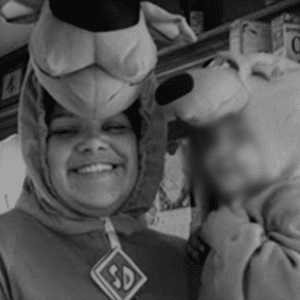 Age 28
Age 28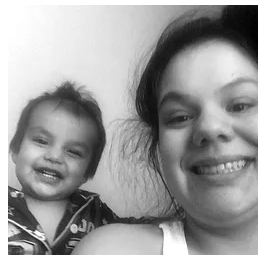 Jackie DeFoe
Jackie DeFoe Age 40
Age 40 Age 20
Age 20 Age 31
Age 31 Age 65
Age 65 Age 28
Age 28 Age 29
Age 29 Age 33
Age 33 Age 27
Age 27 Leneesha Helen Columbus
Leneesha Helen Columbus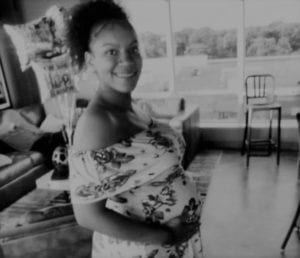 Leneesha LaDell Columbus
Leneesha LaDell Columbus Age 72
Age 72 Age 47
Age 47 Age 47
Age 47 Age 22
Age 22 Miyona Zayla Miller
Miyona Zayla Miller